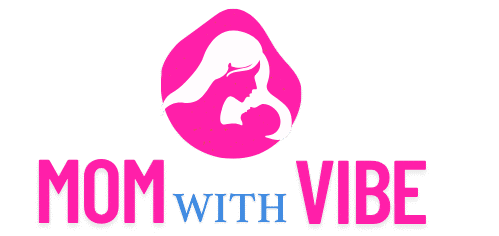As a parent, caregiver, or guardian, you want to provide your child with the best health and wellness foundation possible.
One of the most important steps in ensuring your child receives the proper nutrients and the best start in life is breastfeeding.
We know that breastfeeding for the first six months of life is extremely important for your baby’s growth and development.
But for parents who are less familiar with the benefits of continued breastfeeding, you might be unaware of the many advantages breastfeeding can have on your child’s health.
Breastfeeding for up to 2 years or longer, as the World Health Organization recommends, has several benefits for both the child and the mother.

9 Benefits of Continuing Breastfeeding for an Extended Period
1. Helps to Boost Immune System
Extended breastfeeding has the important benefit of providing your child with ongoing support for their immune system. Breast milk is full of antibodies, white blood cells, and other immune-boosting factors that will protect your child against illness and infection for as long as you choose to breastfeed.
Breastfeeding helps give your child a boost to their immune system early in life. Continuing to breastfeed provides this ongoing protection. Children are frequently exposed to germs and bacteria from the time they start attending daycare, preschool, or school or even in public settings. Extended breastfeeding will help your child avoid the germs they come into contact with daily.
Signs to look for: If your child is breastfeeding and gets sick or affected by germs less often, breastfeeding is providing them with the continued immune support they need to fight off illnesses and infections.
Related: 8 Natural Benefits of Breastfeeding for Mom and Baby
2. Continued Nutritional Benefits
As your child starts to develop and transition to eating more solid foods, breastfeeding provides your child with continued nutritional support for their growth and development. Breast milk continues to provide high-quality protein, healthy fats, and various vitamins essential for your child’s overall health.
Children often miss out on important vitamins and minerals, especially as they transition to eating a wider range of solid foods. Extended breastfeeding can supplement your child’s diet and nutrition.
Signs to look for: Children who continue breastfeeding have more consistent growth, better energy levels, and improved overall health. These children also have a lower risk of food allergies and sensitivities.
Related: 5 Symptoms of Not Eating Enough While Breastfeeding
3. Emotional Comfort and Bonding
In addition to the nutritional benefits, extended breastfeeding can provide your child with continued emotional comfort and security. Breastfeeding acts as an additional form of emotional bonding and comfort, which can positively impact their emotional and psychological development.
Why this matters: Breastfeeding stimulates the production of oxytocin (also known as the “bonding hormone”) in both you and your child. This provides a strong foundation of attachment and bonding, fostering your child’s emotional well-being and safety.
Signs to look for: Your child may show strong emotional security, attachment to the parent, and a generally positive temperament. This is a good sign that extended breastfeeding is helping provide emotional security and attachment.
4. Supports Healthy Brain Development
Breast milk provides a high concentration of fatty acids and essential nutrients important for healthy brain development. Extended breastfeeding provides your child with ongoing nutritional support for their brain, which is especially important for cognitive and neurological development early on.
Research has shown that children who are breastfed for an extended period have higher scores in cognitive and language development tests. Breast milk is full of important nutrients and DHA (docosahexaenoic acid), both of which are crucial for building the structure and function of the brain.
Signs to look for: Children who are extended breastfeeding may show more development in their language skills, problem-solving abilities, and cognitive engagement at an earlier age than children who do not breastfeed for an extended period.
Related: Can Babies Drink Cold Breast Milk?
5. Helps with Emotional Regulation
Children who breastfeed may be more equipped to deal with emotional challenges. Extended breastfeeding can provide your child with the comfort and security they need to deal with stress and anxiety, helping them regulate their emotions during difficult situations.
The security and soothing effect provided by continued breastfeeding can help your child become more resilient when dealing with frustration, stress, or emotional setbacks. Emotional regulation is an important skill to develop as children start to engage with others and face challenges at school.
Signs to look for: You may notice your child is calmer, more collected, and generally more adaptable to emotional challenges if they are supported through extended breastfeeding.
6. Decreased Risk of Chronic Conditions
Breastfeeding also provides long-term benefits for children that extend into adulthood. Extended breastfeeding has been linked to a decreased risk of chronic conditions such as obesity, diabetes, and some types of cancer.
Breast milk provides a natural, balanced source of nutrition and the right amount of fats for healthy weight gain and regulation. Extended breastfeeding helps regulate your child’s appetite and metabolism while providing natural nutrition for a lifetime of health.
Signs to look for: Children who breastfeed for an extended period tend to have lower risks of obesity, better cholesterol and triglyceride levels, and a reduced risk of metabolic and cardiovascular conditions later in life.
Related: Is Ginger Tea Safe While Breastfeeding?
7. Promotes Dental Health
Extended breastfeeding also has the unexpected benefit of promoting better dental health. Breastfeeding supports and promotes proper mouth and jaw development in your child, leading to stronger teeth and healthier dental development.
Breast milk is naturally sweet but doesn’t contribute to cavities and tooth decay like sugary drinks and juices do. Breastfeeding also supports the natural development of muscles in the mouth, which is important for good speech development and healthy eating habits.
Signs to look for: You’ll notice your child’s teeth are well-aligned, their jaw is properly developed, and they have fewer dental issues, such as cavities or misaligned teeth, early on in life.
8. Supports Better Sleep Patterns
Extended breastfeeding can also help your child develop better sleep patterns. Many parents who breastfeed report that their child falls asleep more easily and enjoys deeper, more restful sleep when they are breastfeeding.
Breast milk contains hormones that help regulate your baby’s sleep-wake cycle. Extended breastfeeding provides this comfort, contributing to a natural bedtime routine that promotes healthy and consistent sleep.
Signs to look for: Children who continue breastfeeding tend to have healthier sleep habits. They experience less sleep disruption and enjoy better overall sleep, which benefits both the parent and child.
Related: How To Stop Breast Feeding A Two Year Old
9. Benefits for Mother’s Health
Extended breastfeeding doesn’t just offer long-term benefits for your child’s health, but also for your health as a mother. Extended breastfeeding for up to two years or more has been linked to a reduced risk of breast cancer, ovarian cancer, and type 2 diabetes.
Breastfeeding naturally regulates your hormones and helps with weight loss. It also provides long-term health benefits as you breastfeed for an extended period. Oxytocin released during breastfeeding also helps the uterus contract and return to normal size post-delivery.
Signs to look for: Mothers who breastfeed longer experience better emotional health, physical health, and stronger bonds with their children. They also face a lower risk of hormone-related cancers and conditions, such as breast cancer and ovarian cancer.
Conclusion
As you can see, the benefits of extended breastfeeding go far beyond infancy. The immune-boosting, nutritional, and emotional advantages of breastfeeding continue well into toddlerhood and beyond.
Extended breastfeeding plays a crucial role in ensuring your child’s long-term health and well-being, while also providing lasting benefits for mothers.

- 8th Month Pregnancy Care: What To Expect, Dos And Don’ts - January 17, 2026
- 80 Beautiful Hispanic Girl Names for Your Baby - January 8, 2026
- 7 Physical Signs Your Baby Still Isn’t Ready to Come Out - November 28, 2025



